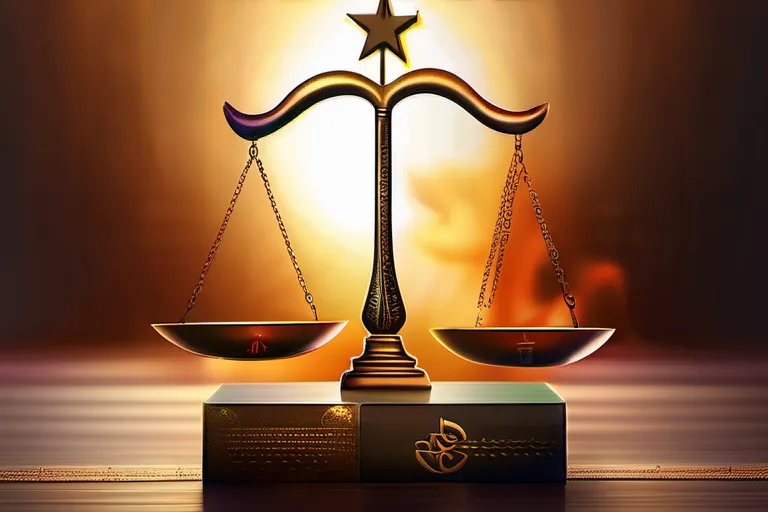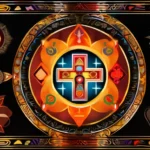Exploring the profound connection between religious beliefs and ethical principles.
This article delves into the intricate relationship between religion and ethics, shedding light on how they intertwine to shape societies and individual actions.
The Historical Evolution of Religion and Ethics
The journey through history reveals how religion and ethics have intertwined, shaping societal norms and individual behaviors. Imagine religion as a vast river, flowing through time and culture, and ethics as its tributaries, nourishing the land along its path. How did these streams originate? When did they start merging into one formidable force?
In ancient civilizations, such as those in Mesopotamia and Egypt, religious practices were deeply rooted in daily life, often intertwined with ethical teachings. For example, in ancient Mesopotamian culture, the Code of Hammurabi, one of the earliest forms of written law, reflected both legal and moral principles derived from their religious beliefs.
The development of ethical guidelines can be seen as a natural progression from the divine commandments to more humanistic interpretations. As societies grew in complexity, so did the need for guiding principles. The philosopher Socrates famously asked, ‘What is right? What is wrong?’ These questions were not just philosophical inquiries but practical ones that shaped ethical norms.
In Judaism, Christianity, and Islam, religious texts like the Torah, Bible, and Quran provided a comprehensive framework for ethics. These texts often addressed key moral issues such as justice, charity, and humility. They served not only as spiritual guides but also as foundational documents that influenced the legal systems of entire civilizations.
The interplay between religion and ethics is a dynamic relationship that has evolved over millennia. From the ancient world to modern times, this connection continues to influence our understanding of what it means to live a moral life. As we delve deeper into history, we see how religious beliefs have shaped ethical principles, and vice versa, creating a complex yet fascinating tapestry of human civilization.
Religious Texts as a Foundation for Ethical Principles
Imagine religion as a vast library, filled with ancient texts that have shaped our understanding of what it means to live ethically. These religious texts serve as not just historical documents but as living guides, their pages filled with stories, teachings, and commands that continue to influence ethical principles in the world today.
How do these sacred writings provide a framework for right conduct? The Bible, for instance, is brimming with moral lessons found in its numerous parables and commandments. One cannot overlook the Nine Commandments of Jesus, which serve as a compass for ethical living, guiding believers to love God and one another. Similarly, the Quran offers principles like compassion, fairness, and honesty, embedded within verses that have been central in shaping Islamic ethics.
In Hinduism, the Panca-sheela (Five Codes of Conduct) provide a comprehensive ethical guide, emphasizing virtues such as non-violence, truthfulness, cleanliness, contentment, and dedication to self-improvement. These principles are not just theoretical; they are meant to be lived every day, influencing how one interacts with the world.
The teachings in these texts often act like signposts on a journey of life, pointing us toward paths of righteousness and justice. They offer wisdom that transcends time and place, reminding us of our responsibilities towards others and ourselves. Are we listening to the voices within these ancient pages?
These religious texts are more than just books; they are living documents that continue to influence ethical practices across generations. They provide a foundation upon which individuals and communities can build their moral frameworks, ensuring that ethical behavior is not just a fleeting trend but a permanent fixture in society.
The Role of Religion in Shaping Ethics
The role of religion in shaping ethics is like a guiding light, casting its influence over the moral compasses of individuals and societies for centuries. How does one religion’s ethical framework differ from another’s? Is there a universal set of principles that transcend cultural and religious boundaries?
Imagine a vast tapestry woven with threads of diverse beliefs and practices. Each thread represents a religion, and together they form a complex pattern that defines human behavior and societal norms. Religion often serves as a moral compass, providing a framework within which individuals can navigate the complexities of right and wrong.
How does religion influence ethical systems? It shapes our understanding of what is considered good or bad by drawing from historical texts, teachings, and spiritual practices. For instance, in Christianity, the Ten Commandments outline fundamental moral values that have shaped Western ethical systems. Similarly, in Hinduism, the concept of dharma guides individuals on their path to righteousness.
What impact does religion have on personal morality? It can profoundly influence how people perceive justice, empathy, and compassion. Many religions emphasize virtues like honesty, humility, and charity, which are foundational in building a moral society. The interplay between religious beliefs and ethical principles is often seen in the way individuals make decisions about their daily lives and interactions with others.
Moreover, religion can act as a catalyst for social change by highlighting issues of inequality, poverty, and environmental degradation. Religious leaders and communities often play pivotal roles in advocating for ethical practices that benefit society at large. This highlights how religious ethics can be a driving force behind transformative actions.
In essence, the role of religion in shaping ethics is multifaceted and deeply rooted in cultural and spiritual traditions. It continues to evolve as societies change, providing a dynamic framework within which individuals and communities can find their moral bearings.
Ethical Principles in Modern Religions
How do modern religions navigate the complexities of ethical principles today? In many ways, this question echoes the timeless quest to find moral guidance in religious teachings. Consider how Christianity, for instance, still grapples with concepts like love and forgiveness in a world marked by technological advancements and social media storms. How do these teachings apply to issues such as social justice or environmental stewardship?
In Islam, the principle of ‘Al-Adl’ (justice) is central. But how does this play out in contemporary societies facing economic disparities and political upheavals? The teachings about compassion and charity are clear, but their application in a globalized world is anything but straightforward. Can these principles be upheld without compromise, or must they adapt to modern challenges?
Buddhism, on the other hand, emphasizes the path of ‘The Middle Way.’ How do contemporary Buddhists interpret this path in an age where consumerism and stress are pervasive? Are there new ethical dilemmas that arise from digital interactions or online presence, which traditional teachings did not anticipate?
The Hindu tradition offers a rich tapestry of ethics through its various schools. Concepts like dharma (duty) and sandhi (harmony) are deeply intertwined with individual and societal responsibilities. In today’s multicultural and pluralistic world, how do these teachings guide individuals in navigating diverse ethical landscapes?
In the Jewish tradition, ethics are rooted in ‘Halacha.’ How do contemporary rabbis interpret these laws to address issues like reproductive rights or environmental concerns? The dynamic interplay between ancient texts and modern realities presents a fascinating exploration of how traditional ethical principles can be reimagined.
The challenges faced by religious communities today are multifaceted, requiring nuanced understandings of ethics in action. By examining these contemporary applications, we see not only the enduring relevance of religious teachings but also their evolving nature. The interplay between religion and ethics is a vibrant dialogue that continues to shape our understanding of what it means to live a moral life in an ever-changing world.
The Intersection of Religion and Ethics in Society
The Intersection of Religion and Ethics in Society: Can We Navigate These Complex Waters Without Getting Lost?
As we navigate through modern society, one can’t help but wonder how deeply religion intertwines with our ethical frameworks. Are they just two ships passing in the night, or do they steer each other’s courses?
- ‘Is it possible that without religion, ethics might be like a ship without a rudder?’
Religion and ethics are like two rivers flowing through the landscape of human life. They merge at various points, influencing laws, norms, and values in profound ways. Think about it: how many times have you encountered situations where religious teachings shaped your understanding of right and wrong?
- ‘Could it be that every legal system we know today has its roots in some form of ethical principles derived from religious beliefs?’
For instance, the concept of charity is deeply rooted in many religions. How does this influence our modern welfare systems? Similarly, laws against murder and theft are often based on ethical teachings that find their origins in religious texts.
- ‘Are we truly separate from these religious ethics when they form the bedrock of societal norms?’
The intersection of religion and ethics is not just about following commands but understanding the rationale behind them. It’s like peeling back layers of an onion, each revealing a deeper truth.
- ‘Can we live in a world where religious teachings are only honored during holidays or when convenient?’
As society evolves, so too must our understanding of this interplay. The questions remain: how do we reconcile personal beliefs with societal norms? And what happens when these two streams diverge?
- ‘Do we need to find a new map for navigating the changing landscapes of religion and ethics in today’s complex world?’
The Future of Religion and Ethics: A Look Ahead
As we peer into the future, one cannot help but wonder how religion and ethics will continue to intertwine in our ever-evolving world. Will they remain steadfast allies or could they face new challenges? In a rapidly changing society where technology is advancing at breakneck speed, it’s crucial to consider what the future might hold for this relationship.
Imagine a world where artificial intelligence (AI) becomes omnipresent. How will religious beliefs shape our ethical guidelines for AI development and use? Will we see new ethical dilemmas arise that challenge traditional religious doctrines? These questions are not just speculative; they have real-world implications. For instance, if an AI system is programmed to make decisions that could impact human lives, how do we reconcile this with the concept of compassion, a central value in many religions?
The global trend towards secularization also raises interesting questions. Will fewer people adhering to religious beliefs lead to a shift in ethical norms? Or will the core values derived from religion continue to influence societal ethics, even if practiced by a smaller proportion of the population? This scenario could lead to a diversification of ethical perspectives, where various religions and secular philosophies coexist and contribute to the broader ethical landscape.
Moreover, climate change is another pressing issue that may drive future developments in religion and ethics. How will religious communities adapt their teachings and practices to address this global crisis? Will they advocate for more sustainable lifestyles or push for governmental policies to combat environmental degradation? These are not just questions of science; they are deeply rooted in ethical and spiritual considerations.
As we look ahead, the future of religion and ethics is likely to be shaped by these and many other factors. The interplay between these two domains will continue to evolve, adapting to new challenges and opportunities presented by our changing world. It’s an exciting time to ponder where this journey might take us.
Conclusion
 By understanding this relationship, we can gain a deeper appreciation for the role of both religion and ethics in our lives and society.
By understanding this relationship, we can gain a deeper appreciation for the role of both religion and ethics in our lives and society.









